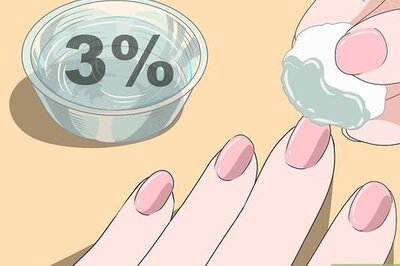
views
Traditionally observed by the Lingayats in the Indian state of Karnataka, Basava Jayanthi marks the birth anniversary of Basavanna – a 12thcentury poet-philosopher who was the founding saint of the Lingayat sect. The day witnesses various celebratory events across states like Karnataka, Maharashtra and Andhra Pradesh. Basava Jayanti is a government holiday in Karnataka.
A staunch follower of Shiva, Basava is believed to have born on the third day of Vaisakha month of the Anandanama (Samvatsara) in the year 1134 A.D. According to believers, the birth of the prophet Basavanna heralded a new era and people refer to the year as 'Basava Era' or 'Basaveshwar Era'. He can be best described as a 12th-century philosopher, statesman, Kannada poet in the Shiva-focussed Bhakti movement and a social reformer during the reign of the Kalachuri-dynasty king Bijjala I in Karnataka.
Basava Jayanthi sees people offering prayers to Lord Basaveshwar in temples whileLingayat committees organise various events celebrating the day. People also exchange sweets and greetings on Basava Jayanthi.
Here are a few facts about Basavanna or Basava:
According to scholars, Basavanna was born inKarnataka’s Ingaleshwar, Bagewadi town, which is 20 km away from Hungund taluk.
He grew up in Kudalasangama and married Gangambikel, the daughter of Bijjala's (one of the famous Chalukya kings) prime minister.
His father was Madaras and mother was Madalambe.
Many followers of Basavanna visit Kudalasangama where Basav Jayanti is celebrated for six to seven day. Several cultural and spiritual programs are also held on this day in Basavanna temples.
Some of the works credited to Basavanna include Vachana such as the Shat-sthala-vachana, Kala-jnana-vachana, Mantra-gopya, Ghatachakra-vachana and Raja-yoga-vachana.
Basava advocated that every human being was equal, irrespective of caste and that all forms of manual labour were equally important.
Basava advocated the wearing of Ishtalinga, a necklace with a pendant that contains a small Shiva Linga.
On 14 November 2015, the Prime Minister of India Narendra Modi, inaugurated the statue of Basavanna along the bank of the river Thames at Lambeth in London. Furthermore, Basavanna is the first Kannadiga in whose honour a commemorative coin has been minted in recognition of his social reforms.
He is also known as Bhaktibhandari (literally, the treasurer of devotion), or Basaveswara (Lord Basava).




















Comments
0 comment